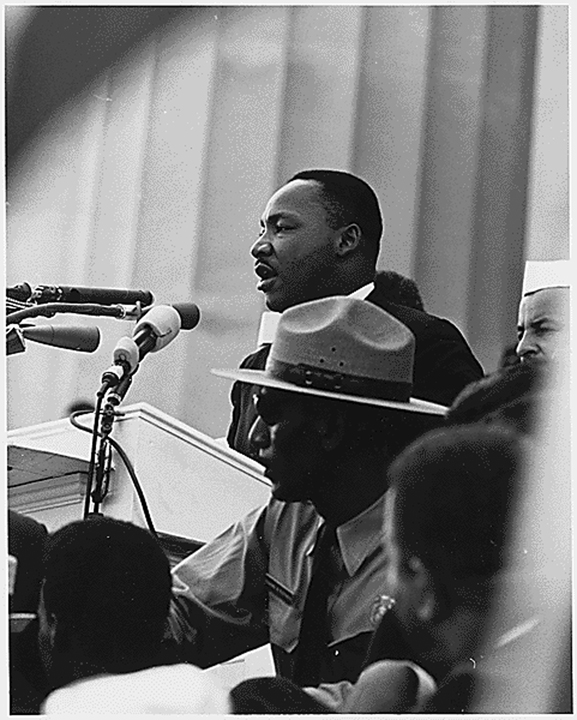Nearly 46 years after the assassination of Martin Luther King Jr., Sinclair Community College kept his memory alive by hosting a week of events in his honor.
The events included a three-part Sinclair Talks series entitled, “MLK speaks to Sinclair,” a community service forum hosted by the African-American Studies department and an annual community walk that commemorated the day on Jan. 20.
Prior to the walk, those who participated were served a continental breakfast, followed by a program where students read parts of MLK’s “World House” chapter and listened to Reverend and Interfaith Campus Minister speak about “who sits at your table.”
Sinclair met up with community participants at the peace bridge and walked to the Dayton Convention Center, according to Battin.
“Remembering the work of Martin Luther King is so important,” she said. “The inspiration he gave to people who want a different a kind of world, who want not just to end racism … but those who also want a community in which everyone is welcome.”
President Steve Johnson said this year was one of the biggest turn-outs that Sinclair has had for the event.
Each of the Sinclair Talks on Jan. 14, 15 and 16 were under the theme of the “World House” Chapter from Martin Luther King’s book, “Where Do We Go From Here? Chaos or Community.”
During the Talks, different members in the community were able to discuss how the “World House” chapter related to them.
“It’s known as the ‘World House’ chapter, because he lays out a vision for living in the world house,” Battin said. “The three events [had] slightly different focal points.”
The first Sinclair Talks had History Instructor Johnathan Curtis explaining where we were as a country and in the world in the mid 1960s under the title, “Context for Challenge: A Historical Perspective.”
Battin said the talk on Wednesday, “Embracing the Vision: Multifaith and Secular Perspectives,” emphasized the particular part of the “World House” vision that dealt with multifaith and the presence in our world. Birthday cake was also served during the event, as it was Martin Luther King Jr.’s birthday.
“It [focused] on people that were very different from each other,” she said.
Individuals from different faiths including Jewish, Buddhist, Secular Humanist and Muslim spoke on how the “World House” chapter related to their faith, including how they viewed the “World House” vision that envisioned people of all races and religions living together in peace.
The third Talk, “Accepting the Challenge: Taking it to the Streets,” had representatives from the United Rehabilitation Services of Greater Dayton, the Interfaith Forum of Greater Dayton and Welcome Dayton to describe how they are applying the “World House” vision to the work that they do in the community, according to Battin.
The African-American Studies department hosted a Community Service Forum in Celebration of Martin Luther King Jr., that was led by Welcome Dayton Panel. The panel included Tom Wahlab, Amaha Sellassie, Migwe Kimemia and Ismail Gula.
During the forum, those who attended were able to learn about how community service played an important role in Dr. King’s life and how it is possible to keep King’s dream alive by continuing community service outreach.
“In respecting one another’s differences, we build peace in the community,” Battin said.

